
Confront initiates their new Core Series with the text piece "There Is No Love" with David Sylvian on voice, vocal treatments and electronics, Rhodri Davies on harp, vibraphone and radio, and Mark Wastel on tam tam and percussion, a sophisticated spoken word piece of shadowy atmosphere and innuendo, leveraging approaches from experimental, improvised and composed music.
In Stock
Quantity in Basket: None
Log In to use our Wish List
Shipping Weight: 3.00 units
EU & UK Customers:
Discogs.com can handle your VAT payments
So please order through Discogs
Sample The Album:
Rhodri Davies-lap harp, table harp, vibraphone, radio
David Sylvian-voice, vocal treatments, electronics
Mark Wastell-tam tam, cracked ride cymbal, chimes, indian temple bells, singing bowls, metal chain, tubular bell, concert bass drum
Click an artist name above to see in-stock items for that artist.
Label: Confront
Catalog ID: core 01
Squidco Product Code: 24019
Format: CD
Condition: New
Released: 2017
Country: UK
Packaging: Cardboard Gatefold
Recorded in Los Angeles, California, 2014, by David Sylvian,
"Debut release in the new Confront Core Series imprint. New studio recording of the text piece There Is No Love which was premiered at Cafe OTO, London on 31st October 2016 as part of the Confront Recordings Twentieth Anniversary celebrations."-Confront
"David Sylvian has always divided opinion. For every passionate supporter there are half a dozen who will decry his every move as pretention. Even among his fanbase there are many who want him to do something more to their taste, along the lines of some past triumph like the Quiet Life/Tin Drum/Brilliant Trees/Blemish album (delete as applicable) that is their personal favourite. For Sylvian the answer is, I suspect, simple -- if you want to hear those records they are there for you in the catalogue, there is no need for him to repeat himself. It's a pattern that emerged with the confidence that he gained from the critical and fan acclaim for that remarkable trilogy of 1980s solo records that enabled him to make the transition from uncomfortable pop star to a position of rare creative freedom.
There is No Love a collaboration with Mark Wastell and Rhodri Davies is unlikely to change how Sylvian is perceived being closer to say 2014s There is a Light.... spoken word piece than say "Adolescent Sex" or even "Gone to Earth". Even on supportive Facebook groups reactions might reasonably be described as 'mixed' dividing between the ecstatic and complete bemusement with little middle ground. So it would be wrong to expect a rehash of old themes from this 30 minute spoken word piece premiered at London's Cafe Oto in 2015. The text that Sylvian carefully enunciates is by Bernard-Marie Koltes and is part of a longer play In the Solitude of Cotton Fields from 1985 that features a dialogue between two shadowy characters, the dealer and the client. Broadly this concerns a transaction -the nature of which is hinted at but not revealed. The eerie late night setting, the hints of violence ('not even the savage grapplings of man or beast at this hour...') and sex ('my melancholy virgin') added to Sylvian's tone conspire to suggest something illicit, hidden. The name the dealer suggests drugs, or a pimp perhaps, maybe even a devil harvesting souls, but nothing is explained.
It is even possible that Sylvian sees something of his relationship to the music industry in the transactional framework of Koltes' play -- but whether that be as the client in relation to an industry dealer, or the dealer as artist to the client as fan is unclear. Art and commerce are and always have been tightly intertwined -- for an artist to live they must find both an audience for their work and a way to reach them, leading to a series of transactions and potential compromises with the wider world. So when Sylvian speaks of the humility of the dealer approaching the client is it he who 'carries a weight that he must unload on whoever comes past, be they man or beast...' -reminiscent of 1984's "Backwaters," "Trying so very hard to please...." perhaps? But ultimately the piece is so open that any number of interpretations are possible and it is easy to get carried away in fanciful analysis, -the quality of the work is such that it draws you in encouraging repeated, concentrated, listens.
Davies and Wastell are long standing improvising partners having played with high profile Sylvian collaborators like John Tilbury, Derek Bailey and Evan Parker. Their work here is atmospheric and unsettling without distracting from the text -- you can sense the musical understanding between them built over many collaborations throughout. The set up for Sylvian's entrance, for example, is excellent building the atmosphere and tension to near the 8 minute mark, beyond the heavily distorted spoken repetition of the title, are around the 8 minute mark. There's a surprising wealth of detail in what first appears to be electronic minimalism -- the electronic hum in the opening section is tense, the tinnitus-like use of gentle distortion tones that adds to the pressure or the way that Wastell unsettles with chimes and bells, reminiscent of the way that the sound of clocks carries in a sparsely lit, near empty, square at night. The foreboding from the concert bass drum after the 'well then what weapon' at the conclusion of the spoken section is another example of how the piece draws you into its world.
If you connected with Sylvian's music into the 21st century then there is a good chance that you will find this to your liking, otherwise it is not going to change your view. While it is sad that such adventurous, literate, music will not be more widely appreciated -- for those who do connect with it this is a treat and an unqualified recommendation."-Phil Barnes, All About Jazz
Get additional information at All About Jazz
Artist Biographies
• Show Bio for Rhodri Davies "Rhodri Davies was born in 1971 in Aberystwyth, Wales and now lives in Gateshead in the northeast of England. He plays harp, electric harp, live-electronics and builds wind, water, ice and fire harp installations. He has released four solo albums: Trem, Over Shadows, Wound Response and An Air Swept Clean of All Distance. His regular groups include: a duo with John Butcher, Common Objects, HEN OGLEDD: Dawson - Davies, a trio with David Toop and Lee Patterson, Cranc, The Sealed Knot and a trio with John Tilbury and Michael Duch. In 2008 he collaborated with the visual artist Gustav Metzger on 'Self-cancellation', a large-scale audio-visual collaboration in London and Glasgow. New pieces for solo harp have been composed for him by: Eliane Radigue, Phill Niblock, Christian Wolff, Ben Patterson, Alison Knowles, Mieko Shiomi and Yasunao Tone. In 2012 he was the recipient of the Foundation for Contemporary Arts, Grants to Artists Award." ^ Hide Bio for Rhodri Davies • Show Bio for David Sylvian "The David Sylvian that fronted new wave pop band Japan wore luminescent hair and glam make-up; on the cover of his solo debut, 1984's Brilliant Trees, he was stylish and refined, a gentleman popster. But the illustration that introduces 2003's Blemish sends a different message: he's bedraggled and unshaven, his far-off expression turned haunted. The new millennium has seen a more serious Sylvian, several steps further along on his musical journey and seeking new sounds to explain new traumas. While Japan started off as one of many '70s New Romantic bands, they made an unpredictable break with their hit "Ghosts" - a searching and evocative single where spare rhythms and fleeting electronic sounds lay under Sylvian's smouldering tenor. "Writing 'Ghosts' was a turning point for me," Sylvian recalls. "So much of what we created with Japan was built upon artifice. With that song I'd felt I'd had the breakthrough I was looking for. I'd touched upon something true to myself and expressed it in a way that didn't leave me feeling overly vulnerable. In the coming years I'd forget about all notions of vulnerability, opening up the material to a greater emotional intensity. I knew that I had to find my own voice, both figuratively and literally." On his solo records of the '80s, Sylvian's explorations in music took him from the pop-funk, stylish jazz and windswept exotica of 1984's Brilliant Trees; the ambient landscapes and epic ballads of 1985's Gone to Earth; and the romantic orchestrations of 1987's Secrets of the Beehive. His collaborators included leaders of progressive music, from jazzmen such as Mark Isham, John Taylor and Kenny Wheeler to the rock and fusion guitarists Robert Fripp, Bill Nelson, and David Torn. All three albums married strong melodies to intricate atmospheres. "The details are what always interested me. And so I just began to spend more and more time on those details, until they came to the forefront of the material-textures and atmospherics. I began to elaborate on those more and more and push the rhythmic element a little bit further back." Other projects from that period included ambient works with trumpeter Jon Hassell and Can alumnus Holger Czukay, as well as a collection of photographic collages titled Perspectives, whose exhibition in Tokyo sparked the documentary video, Preparations For a Journey. Regular collaborations with composer and Yellow Magic Orchestra star Ryuichi Sakamoto yielded Sylvian's first international hit, "Forbidden Colours." In the early '90s, Sylvian embarked on a series of acclaimed tours with Robert Fripp, leading to their 1993 studio release 'The First Day' as well as their 1994 multi-media installation 'Redemption - Approaching Silence' in Tokyo's P3 gallery. This followed Sylvian's first foray into the world of art installations in 1990, when in collaboration with Russell Mills, Sylvian created the installation entitled 'Ember Glance (the permanence of memory)' also held in Tokyo. And 1991 saw the release of Rain Tree Crow, a Japan reunion under a different name. But Sylvian grew less prolific as the decade wore on, enjoying his new marriage to Ingrid Chavez and taking four years to finish 1999's Dead Bees on a Cake. As seductive yet eclectic as any of his prior work, Dead Bees included the hit single "I Surrender," where Sylvian crafts an eye-openingly beautiful vessel around his spiritual journey. Immediately following Dead Bees on a Cake, Sylvian also released a retrospective of his work titled Everything and Nothing, a re-arrangement and re-evaluation of his career dating back to Japan. Sylvian's work with his spiritual teachers has led him through a rigorous process of study and self-examination. Says Sylvian, "I've never come across anything that is as pinpoint accurate as the message you get through the guru. You go through this process with other people who have common goals, you see them confronting their fears, the tests that they're put through, and you look at the manner in which they're tested and think, 'I could handle that.' But when the opportunity for you to learn from your fears comes along, it's like, 'Jesus Christ, give me any other lesson you choose, but not that one.'" His determination to confront his vulnerabilities led to arguably his most powerful album to date, 2003's Blemish. Recorded in his home studio in six weeks, with contributions received via the Internet from improv legend Derek Bailey and electronica artist Christian Fennesz, Blemish captured Sylvian in the process of breaking up with his wife. "I wanted to get into those difficult emotions, and penetrate them as deeply as I felt I was capable of doing, in the security of that working space. So although there were elements of my life that were bringing all these negative emotions to the fore, what I was doing in the studio was taking them further - whereas in life we try to restrain them, we hold them back. We don't allow ourselves to go too far with it because they feel dangerous, they feel threatening," says Sylvian. "Living through these emotions was very difficult, but finding a voice for them was so cathartic. After that six-week period, I'd felt I'd worked through some very difficult emotions. I felt an enormous amount of release." Blemish also marked the debut of his own independent label, SamadhiSound. "I think of [SamadhiSound] as being global, and not necessarily based in the States. It's stretched between the States, Europe, and Japan. I think nowadays it doesn't really matter where we are physically located. We create our own culture around us to a large extent, whether it's what we're listening to, what we're watching, what we're reading - it can have very little to do with one's immediate cultural environment. We are in a global culture in that respect." Samadhi has featured artists from around the world, including new releases by Sweet Billy Pilgrim, Harold Budd, Thomas Feiner, and David Toop, and the last studio recordings by Derek Bailey. This reach is also borne out in a remix album, The Only Daughter, where pieces from Blemish are reinterpreted by artists including Burnt Friedman, Sweet Billy Pilgrim, and Jan Bang and Erik Honoré. Most of the pieces on Blemish depart from traditional pop song forms, a process that began all the way back with "Ghosts" and that continues in his solo work. More recently, he has also released Snow Borne Sorrow and Money for All, an LP and EP from the band Nine Horses. Nine Horses is a trio that includes his brother and regular collaborator Steve Jansen and electronica artist Burnt Friedman, as well as contributions from singer Stina Nordenstem, trumpeter Arve Henriksen, and Ryuichi Sakamoto on piano. Alluring and urbane, the project's trip-hop textures belie its troubled lyrics, inspired by both personal affairs and world concerns. His single with Sakamoto, "World Citizen" - recently featured on the soundtrack to the film Babel - bluntly captures his concerns as a global artist living in post-9/11 America. "It wasn't my natural inclination to get into writing protest songs. But it was a request from Ryuichi to give it a bash. And I felt that there was very little dissent being vocalized in the States," says Sylvian. "I feel furious at what's being done in the name of the American people." In 2009, the project that began in Blemish continues with Manafon, an album that assembles the world's leading free improvisers, including Evan Parker, Keith Rowe, Fennesz, Sachiko M, Otomo Yoshihide, and John Tilbury, among several others. In small ensembles, the improvisers create backdrops for the skeletal songs, and challenge the relationship between improvisation and composition, ensembles and lead voices, and intimacy and solitude. Lyrically challenging, it is also one of the most astonishingly and unpredictably beautiful works Sylvian has produced. Most recently Sylvian revisited the presentation of his music in forms beyond the CD. 'When loud weather buffeted Naoshima' was commissioned by the Naoshima Fukutake Art Museum Foundation on the island of Naoshima, Japan, as part of the NAOSHIMA STANDARD 2 exhibition which ran from Oct 2006 to April 2007. The composition was site specific. In fact, Sylvian has said that the work isn't really complete until the sounds of the town Honmura are incorporated into the listening experience. The piece has since been added to the foundation's permanent collection. In 2009, Sylvian collaborated with composer Dai Fujikura and a small ensemble on the audio installation "When we return you won't recognize us," located on Gran Canaria of the Canary Islands. The work was inspired by a 2003 genetics research article focusing on the Canary Islands, which discovered that despite Spanish colonization and the slave trade, fully half to three-quarters of the population retains its aboriginal genetic lineage. As Sylvian writes, "My interest lay in the connection between the physical or scientific reality of our biological make-up, the links to lineage (genetic genealogy), location and, to move beyond the realm of science into intuitive logic, the interior life of a community or people. An implied cultural heritage." With the release of Manafon, Sylvian continues to confront the challenges, both personal and global, that have enriched his work for three decades. And he continues to follow this path - with patience, perseverance, and beauty.
"-Chris Dahlen ^ Hide Bio for David Sylvian • Show Bio for Mark Wastell "Mark Wastell Born 1968; cello. Much of Mark Wastell's relationship with his chosen instrument is concentrated on the tactile, textural and sonic possibilities of both violoncello and bow. He is increasingly interested in working with extreme elements drawn from frequency, timbre and pitch. His early activity was consciously and subconsciously influenced by a variety of improvising musicians including John Stevens, Barry Guy, Phil Durrant and John Russell. Subsequent exposure to contemporary composers lead to a greater understanding and appreciation of the works written for strings by Feldman, Cage, Nono, Lachenmann and Sciarrino. The use of live electronics and music concrete by Tudor, Parmegiani, Xenakis and others was another important early influence. Wastell's current instrumental material primarily focuses on using abstract principles of space and texture - encompassing elements of new London silence, pro-instrument minimalism, new complexity and electro-acoustics. Because of the very nature of his chosen instrument, he tends to favour 'chamber' style ensembles and is a member of a number of regular groups: Mark Wastell has also performed with many other leading musicians including John Zorn, Keith Rowe, Peter Kowald, Hugh Davies, Roger Turner, Veryan Weston, Lol Coxhill, Mark Sanders, Axel Dorner, Hans Koch, Phil Minton, Max Eastley and Steve Beresford. As a soloist he has played at the Micro-classical Festival (London 1996), LMC Festival (London 2000) and the Huddersfield Contemporary Music Festival (2000). He has travelled extensively with various groups, performing on tour and at festivals in the USA, France, Spain, Italy, Germany, Sweden, Denmark and Greece. Other work includes the launch in 1996 of his own record label, Confront Recordings. Wastell is also joint co-ordinator of the concert venue All Angels, together with Rhodri Davies." ^ Hide Bio for Mark Wastell
11/5/2024
Have a better biography or biography source? Please Contact Us so that we can update this biography.
11/5/2024
Have a better biography or biography source? Please Contact Us so that we can update this biography.
• Derek Bailey's Company - with, for example, Will Gaines, Simon H. Fell and Rhodri Davies
• Evan Parker's String Project, with Peter Cusack, Hugh Davies, Rhodri Davies, Phil Durrant, John Edwards, Kaffe Matthews, Marcio Mattos, John Russell
• Assumed possibilities, with Chris Burn, Rhodri Davies and Phil Durrant
• The Sealed Knot, with Burkhard Beins and Rhodri Davies
• Necessaire with Alessandro Bosetti, Ignaz Schick and Burkhard Beins
• IST with Simon Fell and Rhodri Davies
• Quatuor Accorde with Tony Wren, Phil Durrant and Charlotte Hug
• Broken Concort, a duo with Rhodri Davies
11/5/2024
Have a better biography or biography source? Please Contact Us so that we can update this biography.
Track Listing:
1. There Is No Love 30:16
Improvised Music
Electro-Acoustic
Electro-Acoustic Improv
Free Improvisation
European Improvisation and Experimental Forms
Unusual Vocal Forms
Spoken Word
Trio Recordings
Staff Picks & Recommended Items
Search for other titles on the label:
Confront.


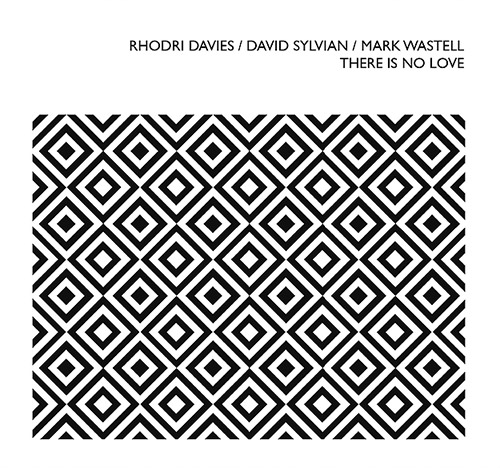

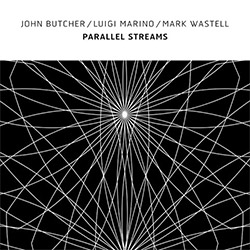
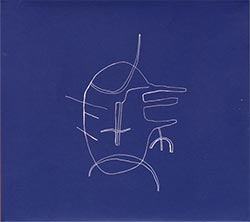
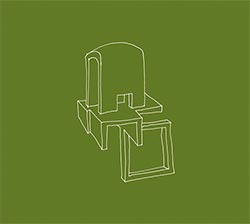
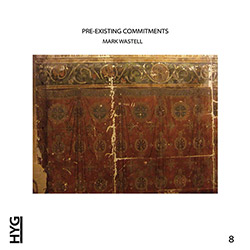
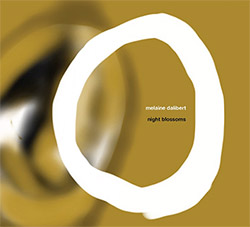

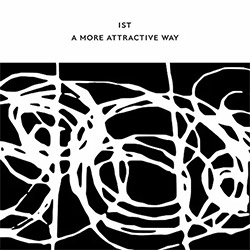
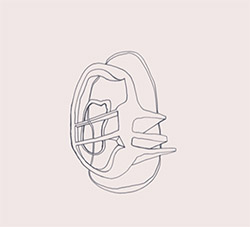
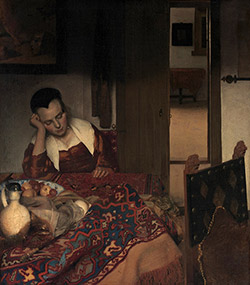
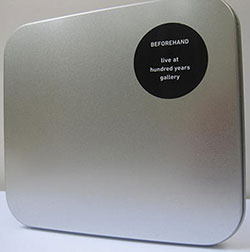

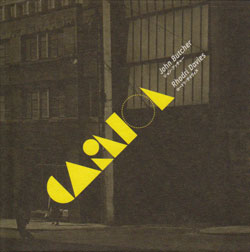
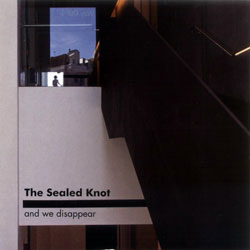
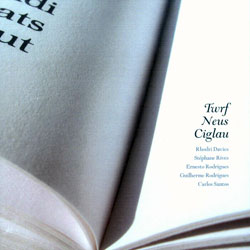
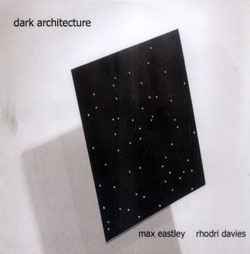
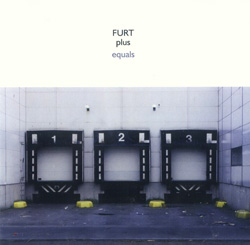
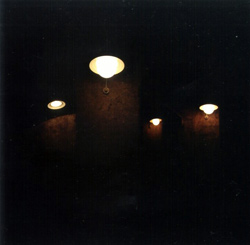
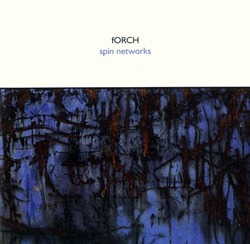

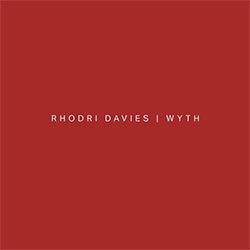





![Warren, Kenny (Warren / Hoffman / Ellman): Sweet World [VINYL]](https://www.teuthida.com/productImages/misc4/35451.jpg)


![Blake, Ran / Dave Knife Fabris: Live Amsterdam 2006, First Visit [CD + POSTCARDS]](https://www.teuthida.com/productImages/misc4/35275.jpg)
![Sanna, Claudio: Compositori Sardi Contemporanei II [2 CDs]](https://www.teuthida.com/productImages/misc4/35317.jpg)














![Musicworks Magazine: #149 Fall 2024 [MAGAZINE + CD]](https://www.teuthida.com/productImages/misc4/35470.jpg)

![Nevai, Nandor: <<The PRICE of FRONTIER>> Book 1: FULK [BOOK + 4 CDs]](https://www.teuthida.com/productImages/misc4/35464.jpg)
![Nevai, Nandor: <<The PRICE of FRONTIER>> Book 2: MARTIAL [BOOK + 4 CDs]](https://www.teuthida.com/productImages/misc4/35465.jpg)
![Nevai, Nandor: <<The PRICE of FRONTIER>> Book 3: JASSOM [BOOK + 4 CDs]](https://www.teuthida.com/productImages/misc4/35466.jpg)
![Nevai, Nandor: <<The PRICE of FRONTIER>> Book 4: HARD-WON [BOOK + 4 CDs]](https://www.teuthida.com/productImages/misc4/35467.jpg)



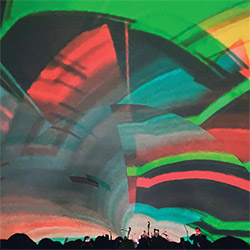
![Mazurek, Rob & Exploding Star Orchestra: Live at Adler Planetarium [VINYL]](https://www.teuthida.com/productImages/misc4/35233.jpg)
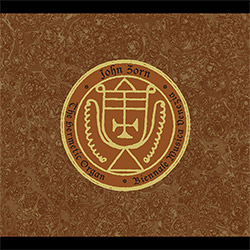
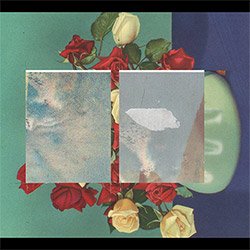
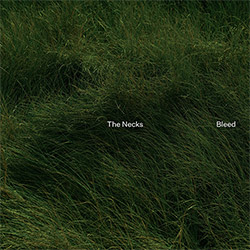
![Necks, The: Bleed [VINYL BLACK]](https://www.teuthida.com/productImages/misc4/35250.jpg)
![Necks, The: Bleed [VINYL GREEN + DOWNLOAD]](https://www.teuthida.com/productImages/misc4/35251.jpg)
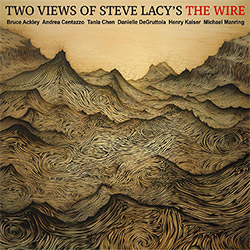

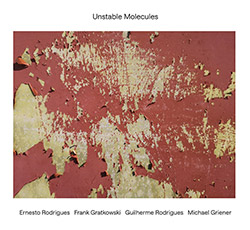

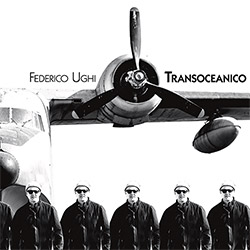
![Attias, Michael (Attias / Leibson / Pavolka / Ferber / Hoffman): Quartet Music Vol. I: LuMiSong [VINYL]](https://www.teuthida.com/productImages/misc4/34878.jpg)
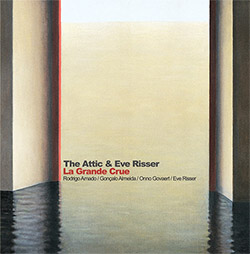
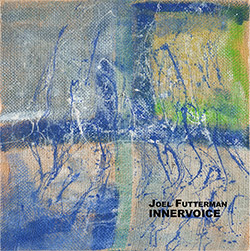



![DNS: Taking Big Bites Of The Khandas Three Cafes Deep [2 CDs]](https://www.teuthida.com/productImages/misc4/35334.jpg)




![Cleaver, Gerald: The Process [VINYL]](https://www.teuthida.com/productImages/misc4/34966.jpg)



![Alva Noto: HYbr:ID II [VINYL 2 LPs]](https://www.teuthida.com/productImages/misc4/35201.jpg)

![Baron, Derek / Luke Martin: Distinct and Concealed [CASSETTE + DOWNLOAD]](https://www.teuthida.com/productImages/misc4/35079.jpg)

![Lyle, Erica Dawn : Colonial Motels [CASSETTE + DOWNLOAD]](https://www.teuthida.com/productImages/misc4/35080.jpg)







![Alva Noto: HYbr:ID III [VINYL 2 LPs]](https://www.teuthida.com/productImages/misc4/35011.jpg)
![Kubisch, Christina / Trondheim Voices: Stromsanger 2022 For Six Voices And Electromagnetic Waves [VINYL]](https://www.teuthida.com/productImages/misc4/34628.jpg)
![Ristic, Manja / Joana Guerra / Veronica Cerrotta: Slani pejzazi [CASSETTE + DOWNLOAD]](https://www.teuthida.com/productImages/misc4/34928.jpg)
![Euro Herc: Segnali [CASSETTE + DOWNLOAD]](https://www.teuthida.com/productImages/misc4/34929.jpg)







![Zurria, Manuel: Fame di Vento [3 CDs]](https://www.teuthida.com/productImages/misc4/35167.jpg)

![Granberg, Magnus / Nattens Inbrott / Skogen: Holde Traume, Kehret Wieder! [2 CDs]](https://www.teuthida.com/productImages/misc4/35038.jpg)
![Frey, Jurg: Outermost Melodie [2 CDs]](https://www.teuthida.com/productImages/misc4/35039.jpg)

![Pavone, Jessica: Reverse Bloom [VINYL]](https://www.teuthida.com/productImages/misc4/34895.jpg)




![Modney (Modney / Wooley / Gentile / Roberts / Pluta / Symthe / ...): Ascending Primes [2 CDs]](https://www.teuthida.com/productImages/misc4/34852.jpg)






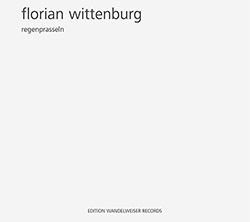

![Kirschner, Kenneth / Joseph Branciforte: From the Machine: Volume 1 [VINYL]](https://www.teuthida.com/productImages/misc4/30767.jpg)

![Elephant9 with Terje Rypdal: Catching Fire [VINYL 2 LPs]](https://www.teuthida.com/productImages/misc4/35355.jpg)
![Deerlady (Obomsawin, Mali / Magdalena Abrego): Greatest Hits [VINYL]](https://www.teuthida.com/productImages/misc4/34876.jpg)




![Haino, Keiji: Black Blues [2 CDs]](https://www.teuthida.com/productImages/misc4/35109.jpg)



![Surplus 1980: Illusion of Consistency [CD]](https://www.teuthida.com/productImages/misc4/35069.jpg)
![Staiano, Moe: Away Towards the Light [VINYL + DOWNLOAD]](https://www.teuthida.com/productImages/misc4/35037.jpg)




![Caveira (Gomes / Sousa / Abras / Ferrandini): Ficar Vivo [VINYL]](https://www.teuthida.com/productImages/misc4/34643.jpg)
![Gregg, J. J. / David Van Auken: Lunar Prairie [CD w/ DOWNLOAD]](https://www.teuthida.com/productImages/misc4/34611.jpg)

![Coultrain: Mundus [VINYL]](https://www.teuthida.com/productImages/misc4/32439.jpg)
![Mattin: Songbook #6 [VINYL]](https://www.teuthida.com/productImages/misc4/27317.jpg)
![Punkappella: Wake Up [7-inch VINYL]](https://www.teuthida.com/productImages/misc4/17519.jpg)
![Residents, The: WARNING: UNiNC.: Live And Experimental Recordings 1971-1972 [VINYL 2 LPs]](https://www.teuthida.com/productImages/misc4/31521.jpg)
![Coultrain: Phantasmagoria [VINYL]](https://www.teuthida.com/productImages/misc4/30142.jpg)
![Lennon, Sean Ono: Asterisms [VINYL]](https://www.teuthida.com/productImages/misc4/34517.jpg)

![Rotem Geffen: The Night Is The Night [VINYL]](https://www.teuthida.com/productImages/misc4/34631.jpg)
![Coley, Byron: Dating Tips for Touring Bands [VINYL]](https://www.teuthida.com/productImages/misc4/17906.jpg)

![Lost Kisses: My Life is Sad & Funny [DVD]](https://www.teuthida.com/productImages/misc4/lostKissesDVD.jpg)